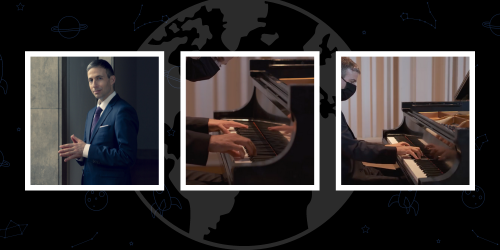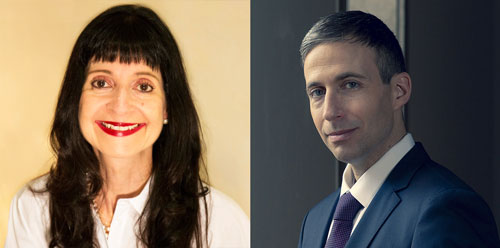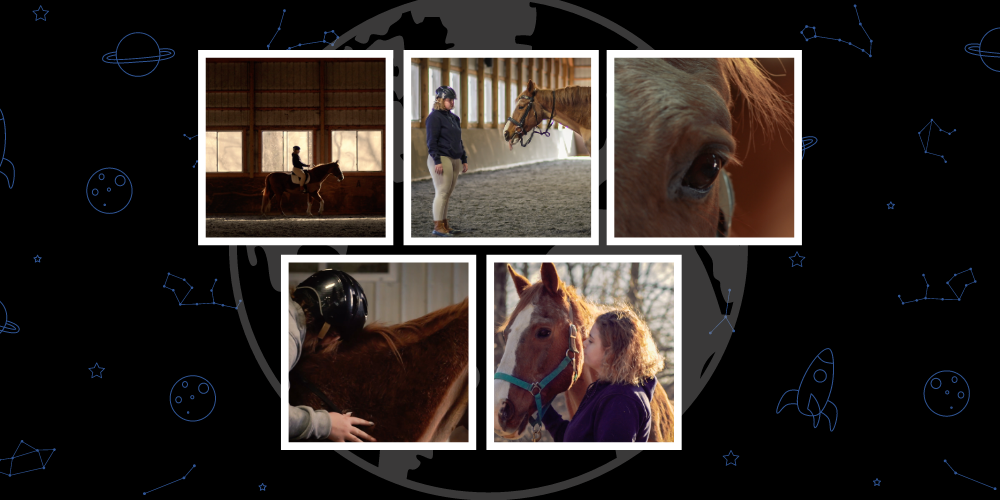Questo mese, audiences can watch Benjamin Hochman perform Bach’s “Prelude and Fugue in B minor” from “The Well-Tempered Clavier” and Beethoven’s “Piano Sonata No. 30" sulla rete Planet Classroom. This video was curated by Bard College Conservatory of Music.
Since his Carnegie Hall debut as soloist with the Israel Philharmonic under the baton of Pinchas Zukerman, Hochman has enjoyed an international performing career, appearing as soloist with the New York, Los Angeles, and Prague Philharmonic Orchestras, and the Chicago, Pittsburgh, San Francisco, and Jerusalem Symphony Orchestras. He serves on the piano faculty of Bard College Conservatory of Music and is a Steinway Artist.
Il Global Ricerca per l'Educazione is pleased to welcome Benjamin Hochman.
Benjamin, can you talk about why you selected these particular Bach and Beethoven compositions?
In the early days of the pandemic, my “daily bread” of Bach and Beethoven felt more important than ever before. It provided a lifeline to connection and order, strength and solace in uncertain times. The Bach and Beethoven works in this recording are pieces I had spent time with again and again over the years – and they are extraordinary. It felt right to play them and share them with others, even if it was only online since public concerts were not yet taking place.
Why do you think these composers are still relevant today?
A me, Bach and Beethoven are timeless. The beauty and depth of their music is unsurpassed, and I believe will remain essential.
In modern education, non-STEM fields are often portrayed as financially unreliable. As a Bard Conservatory Faculty member, what would you say to a student who is hesitant to enter the musical world due to this concern?
The reality is that there are no guarantees. A life in music offers great rewards – how lucky we are to have such endless musical riches to study and perform! But it is true that there are risks and challenges, and this life is not for everyone. Many of the students at Bard are also extremely gifted in non-musical areas. Some choose to take that career path, often with great success. To have music in your life is a wonderful thing, regardless of whether you make your living from it.
With schools receiving miniscule arts budgets, across the United States specifically, what advice do you have for educators about inspiring art outside the classroom to cultivate a new generation of creative thinkers?
Secondo me, education has to start early. This is true in the arts generally, as well as in music specifically. I think we all have to do our best to pass on what we know to others: audiences, students etc. Each of us can do that within our sphere of influence, wherever that may be. Music is a craft, a field of knowledge, and so much more. But it must be cultivated.
Your focus is on music, primarily piano and conducting. Crescendo, how did you discover that passion? Would you say your early education in Jerusalem influenced its development positively?
I come from a family of academics; my parents were professors of literature. They appreciated music and were very supportive but by no means connoisseurs. My musical ability was discovered by chance at age 5 by a babysitter who taught me some songs at the piano. I was very fortunate to receive an outstanding musical education in Israel – from my devoted teachers as well as from luminaries who I played for in masterclasses, such as Murray Perahia, Claude Frank, Leon Fleisher, Isaac Stern, etc. Coming to Curtis at age 17 and Marlboro a few years later allowed me to take the next steps, learning so much from so many.
Thank you Benjamin!
C.M. Rubin and Benjamin Hochman
Da non perdere Benjamin Hochman’s performance of Bach’s “Prelude and Fugue in B minor” from “The Well-Tempered Clavier” and Beethoven’s “Piano Sonata No. 30" sulla rete Planet Classroom. This video was curated by Bard College Conservatory of Music.







Commenti recenti